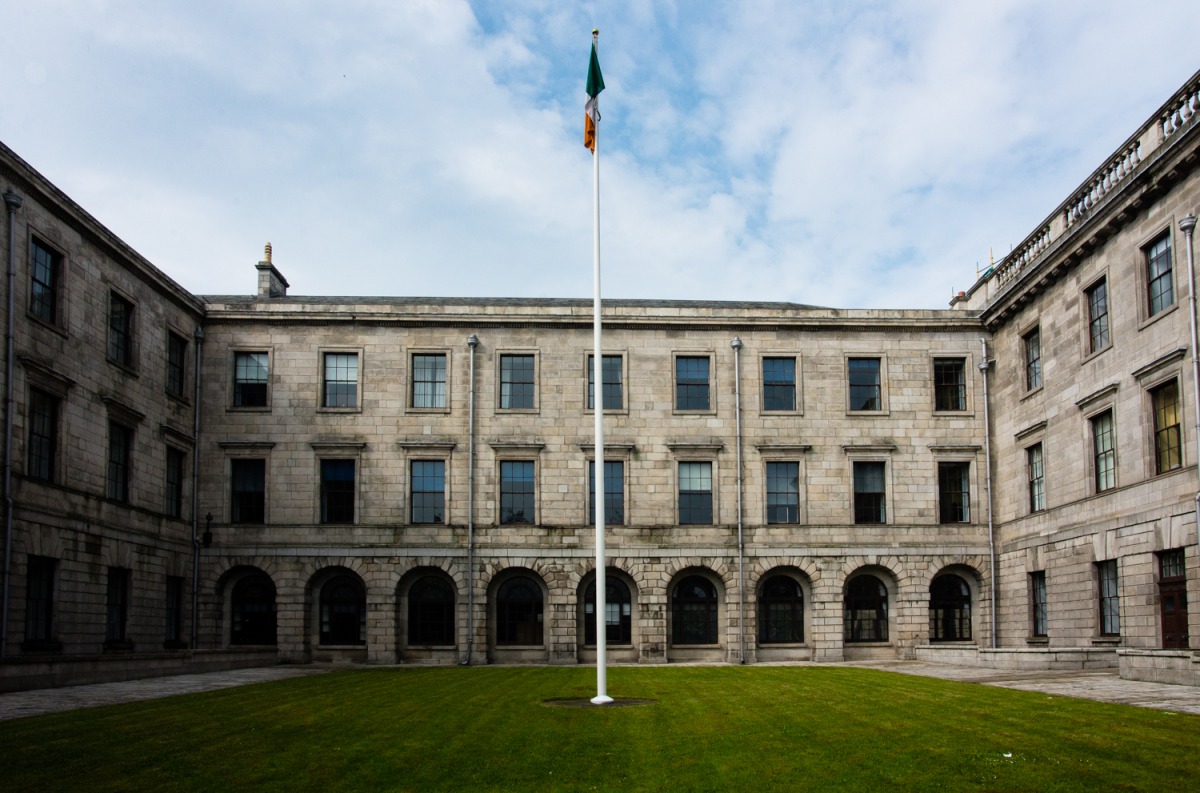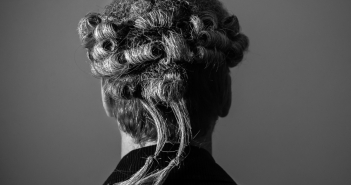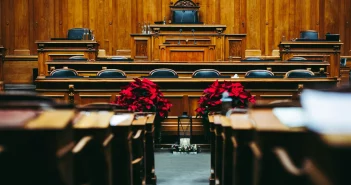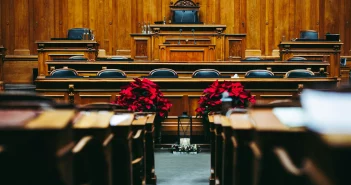Irish Times journalist Naomi O’Leary wrote an article recently commenting on how journalists are curtailed in what they can write by the threat of defamation actions, which contributes to an omerta or code of silence, undermining free speech.
This leads to self-censorship, dictated by fear of suit. But the Irish Times trust also appears to be compromised by association with vested interests, which dictate the blandishments and glorified stenography passing for journalism commonly encountered in its pages.
In the aforementioned article, O’Leary cited emotive evidence of a landlord attempting to evict ‘an entire apartment block’, and a civil society group ‘highlighting privatisation in healthcare’ being silenced. She notes, fawningly, that Minister for Justice Simon Harris this week ‘laid out a planned defamation reform, saying it should not be perceived as a “rich man’s law”.’
Does she seriously think that any reform of defamation laws has simply been designed to restrict the casino capitalism of the current level of awards in defamation cases?
Indeed, in some instances a high level of damages is appropriate. For example, Lord Aldington was entitled to millions in damages for the outrageous slur that he had participated in sending the Cossacks back to Stalin. The unjustified staining of reputations with crimes against humanity requires vigorous restraints.
David Langwallner arges that freedom of speech, a central hallmark of a democracy encouraging diversity and tolerance, is under serious threat from social media.https://t.co/DacsViiSF4@broadsheet_ie @BowesChay @MattChristmas @danieleidiniph1 @davidmcw @liamherrick @LiamDeegan3
— CassandraVoices (@VoicesCassandra) March 14, 2022
Reforms
Predictably, the draft guidelines for what lies in store do not look auspicious, as it appears designed to protect the powerful, who dominate legacy media.
It should be noted that recently both Taoiseach Leo Varadkar and Tánaiste Micheál Martin suggested that Sinn Féin were using legal action and menacing solicitors’ letters to undermine free speech and robust questioning of political motives. There was obvious concern arising out of strict conditions for an RTÉ interview with Shane Ross, discussing his biography of Mary Lou McDonald.
I have some empathy with Ross – whose views I generally find abhorrent – as when I went on RTÉ they stipulated certain matters, such as overt criticism of the Gardaí, were out of bounds.
What Ross wrote about the Sinn Féin leader may not have been defamatory, but simply ideologically tainted. After all, Ross has what might be regarded as extreme views on certain issues, as, arguably, do elements within Sinn Féin. The difference is that Ross is indulged by the establishment with publishing deals and a column in a Sunday paper. Go figure.
If you want to be a journalist in Ireland it is generally advisable to espouse neo-liberal views.
Village’s ‘Putinistas’
Moreover, remarks made by Leo Varadkar last year in an interview with the Sunday Times to the effect that those associated with the Leo the Leak story in Village Magazine were Russian sympathisers is a classic example of the degradation of contemporary political discourse, conveyed by media which offers an uncritical platform to those in power. It was, of course, clearly defamatory towards its editor Michael Smith, who has been vocal in his condemnation of Vladimir Putin.
He might not expect a justified windfall, however, if the case comes before a Fine Gael-appointed judge, as opposed to a jury, as the defamation bill proposes.
The renowned jurist Geoffrey Robertson QC has criticised gagging orders silencing critics, which serves the interests of the kleptocracy, including Russian oligarchs, in a recent book. but be we should be careful for what we wish for.
A gagging orders might have been appropriate to counter Labour’s recent absurd slur against Rishi Sunak, which Keir Starmer doubled down on despite internal criticism from within his own party. All too often it has been the fake left, epitomised by Alastair Campbell, which has pandered to press hysteria in criminal justice in the UK.
Frank Armstrong completes his review of histories of dissenting journalism in 20th century Ireland, and includes a tribute to John Ryan's @broadsheet_iehttps://t.co/XZIyTGp8zQ@BowesChay@danieleidiniph1@BenPantrey@FourCourtsPress@fortnight50@phoenixmagazine@paddycosgrave
— CassandraVoices (@VoicesCassandra) June 22, 2022
Blackmail
I note the word ‘aggressive’ being used by Ms O’Leary in the context of pre-emptive threats, which is similar to the menace required to ground the criminal offence known as blackmail; the definition of which is menace backed by threats. Such tactics are something the government parties in Ireland and apparatchiks in the police and justice department know a considerable amount about.
So, spurious defamation actions for ulterior motives may come close to the criminal charge of blackmail backed by threats, but only if these are spurious and untrue. But what if they are true? And where should the balance lie?
It is almost universally agreed, including, apparently, by the incumbent Minister for Justice, Simon Harris that ‘Democracy cannot truly flourish without robust protection for the right of freedom of expression.’ In a certain respect, however, this Bill will in fact seriously curtail freedom of expression, a point that Naomi O’Leary strikingly ignores.
Indeed, one wonders whether the whole article was conceived in cahoots with said Minister, who she has previously quoted approvingly over his role in the repeal of the Eighth Amendment, while ignoring that he once adopted a Pro-Life stance. The article is also presented with a flattering shot of the Minister emblazoned over it, depicting him as the champion of free speech.
You'll be amazed to find out where Misery Hill leads… #Dublinstreetnames #miseryhill https://t.co/VZxPFRj0nH pic.twitter.com/rtvyZQVFmh
— CassandraVoices (@VoicesCassandra) November 25, 2019
Online Disclosure
Freedom of expression is the central hallmark of a democracy. Anthony Lewis, referring to the First Amendment of the US Constitution, said that free speech should be a search engine for the truth. The great legal scholar Ronald Dworkin argued that free speech is a condition of legitimate government and a counterweight to hysteria and unreason. Stephen Sedley, a great English judge, called it the lifeblood of a democracy. Freedom of speech also opens the government and indeed opposition to intense scrutiny. The prior restraint of gagging orders invites scepticism.
So, bearing this in mind, let us explore the motivation of the current government for reforming the defamation laws.
The proposed government Bill on Online Disclosure applies to all media, including Twitter, and potentially criminalises certain categories of ‘hate’ speech.
It could amount to the most dramatic curtailment of free speech in the history of the state. Thus, if Naomi O’ Leary had the temerity to compare Leo Varadkar to a wart on the sole of one’s foot in jest she might be prosecuted, and appear before a Fine Gael appointed judge.
The much-trumpeted new Whistleblowing Act ineffectively opposed, and badly amended, is also worth considering. It does not protect media breaking stories; nor does it adequately protect employees including journalist from reporting externally.
A legal environment that favours legacy publishers that employ expert legal advice in advance of publication, as opposed to private individuals ranting on Twitter – often to very small audiences – also ignores the restraints imposed internally by an increasingly corporatized press, which acts as a stenographer to the powerful. This is a role which Naomi O’Leary herself seems proud to perform.
The Irish Times is a trust, but dependent on its sponsors and connections; so it does not, and arguably cannot, provide genuinely truth-driven coverage that a true democracy requires. It is institutionally neutered and not just by prospective defamation actions.
Defamation suits and pre-emptive injunctions chill free speech, and are frowned on by lawyers and responsible journalists. Such injunctions sought to shut down Watergate and Wikileaks. The judgment in the seminal US constitutional case the Pentagon Papers frowned on it. Politicians ought to be thick-skinned when it comes to obloquy and ridicule, it goes with the territory of assuming power.
What we are dealing with is a far wider problem in contemporary political discourse. Jürgen Habermas – perhaps the leading public intellectual alive on the planet – developed the crucial idea of ideal speech or communicative action, which serves as an argument to the effect that speech should be proper and non-ideological in order to achieve optimum technical outcomes that are also morally purposeful.
Sadly, most of what passes for debate in Dáil Eireann would be at the very opposite pole to the kind of Enlightenment salon discussions he imagines.
Daniele Idini explores continued challenges for Irish whistleblowers and interviews human rights lawyer David Langwallner now working on a private members bill.https://t.co/xDNigyJenY@BowesChay @paddycosgrave @j_reilly33 @broadsheet_ie @VillageMagIRE @WhistleIRL @PeterDooleyDUB
— CassandraVoices (@VoicesCassandra) June 30, 2021
Outer Limits of Free Speech
The criminalisation or suing or gagging of speech – generally of those that most need protecting – is an awful feature of these woe-begotten times.
Given the approving coverage that legacy media already provides to representatives of the parties representing large corporations in Ireland, the least we might expect is that debate on online fora continues remains robust, and, in general, conducted without fear of suit.
Rarely, if ever, does the Irish Times land a blow against vested interests in Ireland, channelling instead a latent anger against distant caricatures over whom we have no control. Online fora at least offer an opportunity for citizen journalists to provide accounts that challenge dominant narratives in a way that legacy media does not.
Naturally, speech has its outer limits. Hate speech that inspires violence against minority groups cannot be tolerated in a civilised society. Social media publishers have a responsibility to moderate content, but cannot be allowed to decide what constitutes ‘disinformation’, and censor according to the whims of bodies that may be subject to regulatory capture. Censorship is always dangerous.
Surely, with respect to Fine Gael for example, one should be allowed to describe them as crypto-fascists, or indeed suggest that Mary-Lou McDonald is associated with terrorists as Mr. Ross seems to have done.
Fintan O’Toole constantly warns against the dangers posed by Sinn Féin, but rarely does he offer a searing critic of the corporatocracy and dominant political parties. His sympathies seem to lie with a weary establishment, which ‘have no choice’ but to coalesces with the neoliberal parties.
Untrammelled freedom of expression should only be accorded to those who say something of significance – those who have something to lose by speaking out.
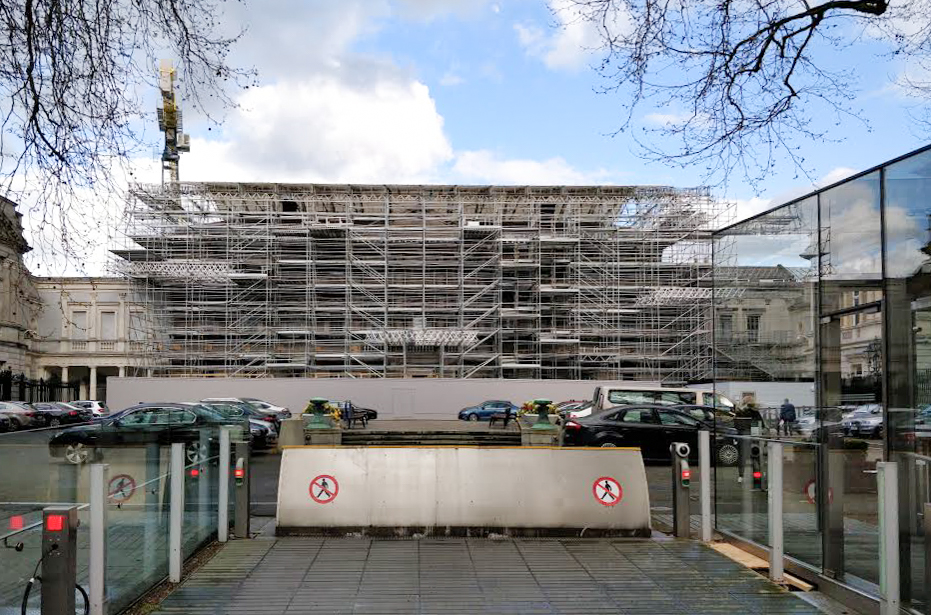
Robust Debate
The solution, of course, is not litigation but robust debate in civil society; as one of the great defenders of speech the late great Christopher Hitchens put it: ‘If you disagree with me, do so and stand in line so I can kick your ass.’ Or words to that effect. Possibly slurred.
A defamation action can ruin a person’s life. A casual disregard for the truth in Ireland and premptive publication fed by the police and its journalistic cohorts in the gutter press can have serious consequences. The Irish Independent and much of RTÉ deserve no special protection.
Given the platform he is accorded, nor should the gaffe-prone Leo Varadkar be allowed to shelter behind loose laws that should be designed to protect real journalists. His big mouth was most recently in evidence with his crass sub–American Monica Lewinsky comment.
Indeed, give the parlous state of media in Ireland, one shudders to think what nonsense will be published if we are to dispense with reasonably strict defamation laws, and jury trials.
Nonetheless, I can agree with a certain amount of what Naomi O’Leary’s recent article argues. No doubt defamation awards should be curtailed and are out of kilter with other jurisdictions, but negating jury trials where liars are exposed would be a retrograde step, and the criminalisation of the nebulous concept of hate speech could be disastrous, rendering satire almost impossible.
Freedom of expression has its limits. Indeed, one wonders about the responsibility of a publisher such as the Irish Times, which gives a platform to an ideologue like Michael McDowell, who attributes the world’s problems to Vladimir Putin as opposed to the neo-liberal shock brigade that he and his Irish Times acolytes belong to. They have provided cover for mass evictions, a declining quality of life and incipient far-right fascism.

